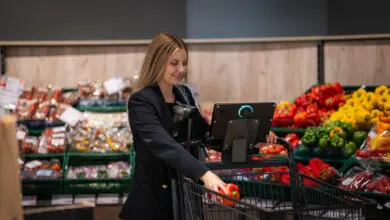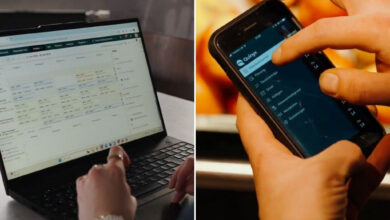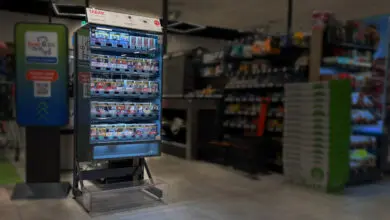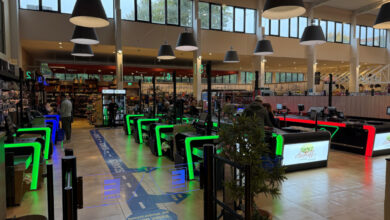Learning from the French when Amazon comes
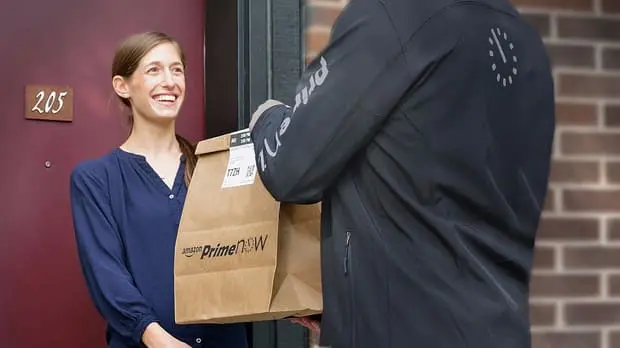
A report by Björn Weber and Gildas Aïtamer
Whether they like it or not: German grocery retailers cannot avoid e-commerce. Amazon is not letting up and is once again starting a new approach to become a supplier of a supermarket assortment. For the Edeka, Rewe and Schwarz groups, it is worth taking a look at the French market. Through innovative concepts and investments into technology, companies such as Groupe Casino and E.Leclerc are confidently securing their business against Amazon.
Even though the few food delivery services in Germany were hopelessly overloaded in the exceptional situation of March and April this year: The online trade with food is still a very delicate plant in Germany and there is probably no one who operates it profitably.
Oliver Wyman’s well-informed e-food consultants estimate that the online share of the food trade in Germany will double this year due to the push of the lockdown – but at an extremely low level: from a good one percent last year to a good two percent this year.
Fear of Amazon
And suddenly it is back: the fear of Amazon. The retailer that already controls 30 percent of non-food online trade in Germany. For a long time the decision-makers of German grocery retail companies thought that the world’s largest online retailer would not be able to manage the food business after all, and at least in Europe it has given up for the time being. And indeed, it looked as if Amazon’s grocery business in Germany had failed.
Amazon Fresh’s expansion plans were on ice, as were those of Prime Now. What many overlooked: Amazon first had to expand its Uber-like crowd delivery system Amazon Flex in Germany. Although officially launched in November 2017, Amazon needed some time to get it up and running. Its predecessor Amazon Logistics had not worked out, as this relied on companies of registered subcontractors, which simply did not exist in Germany in sufficient quality and quantity.
Now the crowd logistics system Amazon Flex has really arrived in Germany. And the world’s largest online retailer is becoming active in food delivery again: since 11 August, it has been delivering orders from the Tegut range within a few hours to Prime members in the southern Hessian region around Darmstadt and even parts of Frankfurt. This is the first expansion of Amazon Prime Now in Germany for a long time. Previously, the service had stagnated in its original delivery areas of Berlin and Munich.
Prime Now delivers from Tegut store
The orders are picked by employees of the Tegut store in Weiterstadt, Hesse, and then handed over to crowd-workers, who secure the order via Amazon Flex and deliver it with their private vehicle, often a passenger car. The range of manufacturer brands, fresh produce, Tegut private labels, from which customers can choose on the Prime Now app or website, is currently limited to around 6,000 Tegut products, but is to be expanded to 10,000 by the end of the year.
Prime Now delivers from Monday to Saturday between 10 and 22 o’clock. From an order value of 50 Euros, delivery is free of charge. Smaller orders starting at 20 Euros can also be placed, for which a delivery fee of 3.99 Euros is charged.
The fees differ from what Amazon Prime Now has so far charged in Germany for food deliveries including refrigerated goods. In Berlin and Munich, the online Prime Now for free delivery requires either an Amazon Fresh membership for 7.99 per month in addition to the Prime Membership or an order value of at least 100 Euros. However, as goods suppliers report to the Retail Optimiser, it looks as if Amazon Fresh in Germany is completely below expectations and is also seen as a major problem within the company. It was only during the lockdown that demand was really high, pushing the service to its limits.
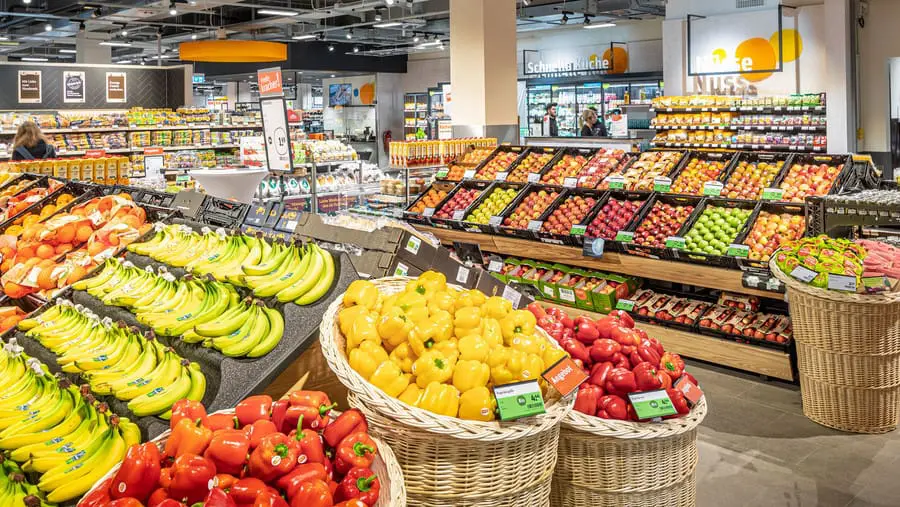
The new advance by Amazon frightens the decision makers at Edeka, Rewe but also the Schwarz group. It has not escaped their attention that the regional Hessian retailer Tegut has been supplying a respectable range of dry goods including its own brands to Amazon for parcel delivery for some time now. And even before Tegut became indirectly active throughout Germany, another retailer with only regional representation was already supplying the online giant with food: Bünting. However, the parcel delivery of a dry assortment was not perceived as really dangerous in the upper echelons of management, even if this erodes sales of certain product groups.
Short delivery times make the industry sweat
Delivering goods from the entire supermarket assortment within hours, on the other hand, is a real challenge for the entire retail industry. Although Rewe Group was anything but idle in view of the danger posed by Amazon and has built up a respectable delivery service.
Delivery for the editorial office
The Retail Optimiser Team was one of Prime Now’s first customers in Hesse on 11 October. We ordered shortly before 17:00 and took the next possible window from 20:00 to 22:00 for delivery. Shortly before 20:00 friendly Amazon Flex drivers with paper bags were standing in front of the door.
Messages on our smartphone transparently documented the progress of the order and the location of the delivery. We are also kept informed that one of the products is not available. We can easily replace it with a suggested alternative.
The food products requiring refrigeration and deep-freezing are packed separately, transported in cooling boxes with standard household freezer packs and arrive at our premises ice-cold, even in the mid-summer outside temperatures. But fruit and vegetables are individually packaged in plastic, which does not fit in at all with Tegut’s ecological image.
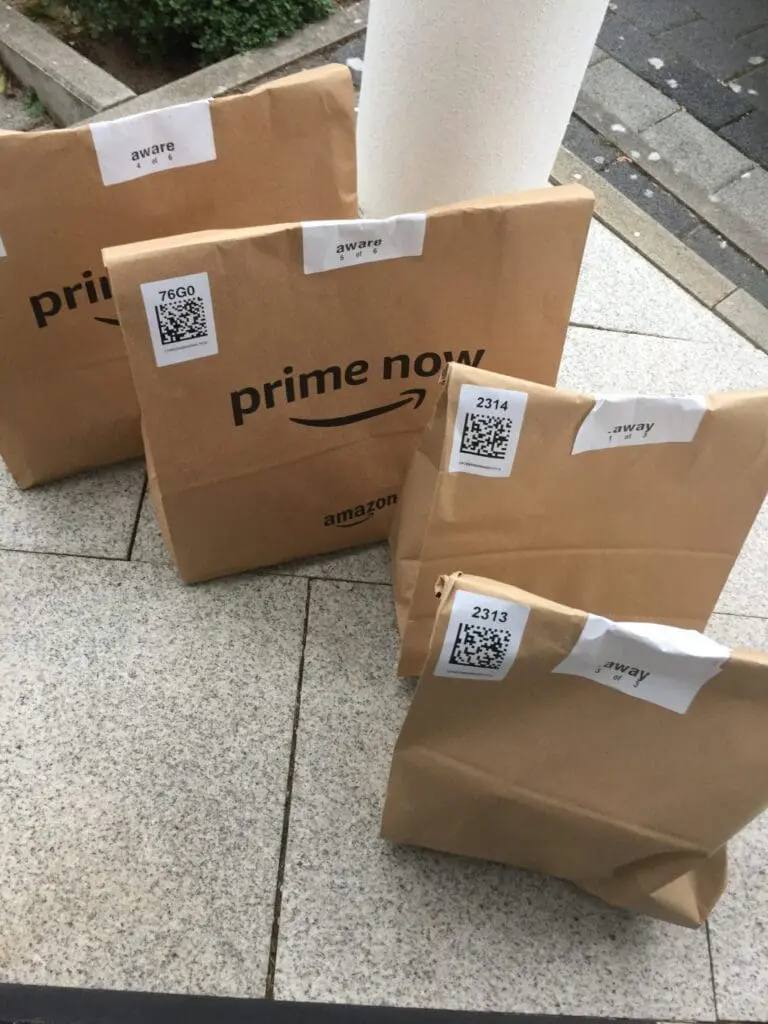
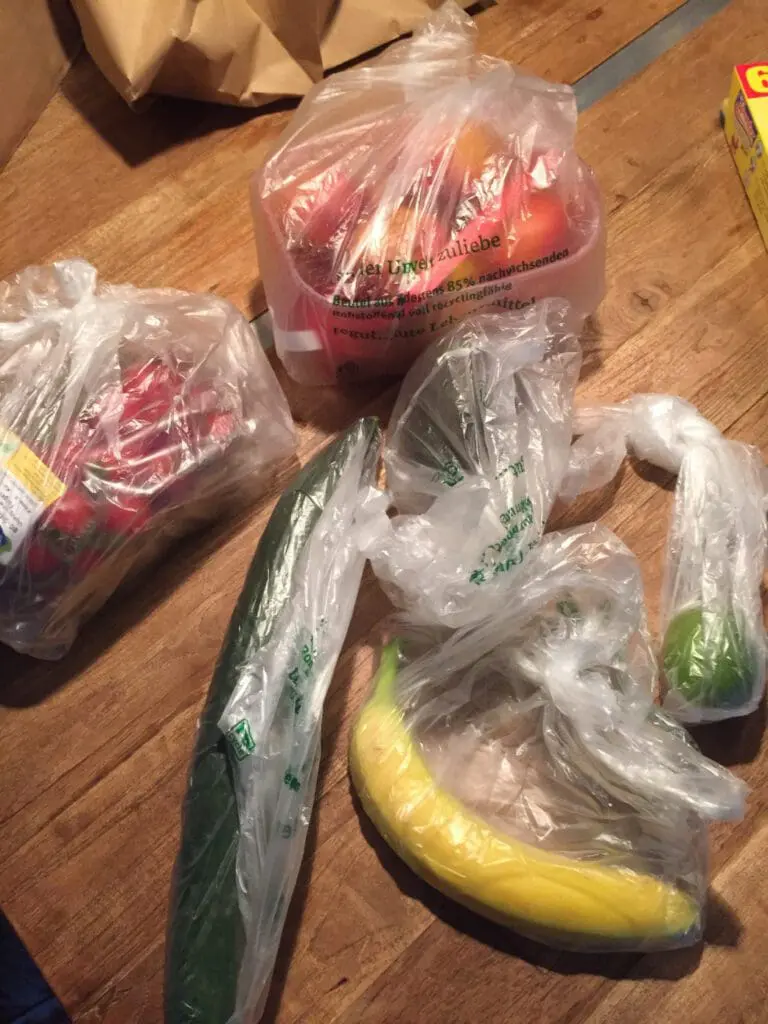
With its delivery service in 75 cities, Rewe Group is the online food retailer that reaches most Germans. However, it is doubtful whether it is 65 percent of German households, as Rewe claims. The Rewe Group does not report its current turnover, but according to estimates by the Retail Optimiser, it will probably be a modest 230 million Euros in 2019. Modest, but still almost twice as much as Amazon Fresh’s estimated combined turnover in the UK and Germany.
In Berlin, Munich, Hamburg, Hanover, Düsseldorf, Cologne, Frankfurt and Mannheim, Rewe even offers same-day delivery to customers. But only if the order is received by 13:00 and a delivery period starting at 17:00 on the same day is free — which was practically never the case in times of lockdown.
Platform also for independent merchants
Rewe Group has reacted to the considerable criticism voiced by independent Rewe shop owners that the centrally controlled delivery service is virtually driving away the turnover from their stores: since spring 2019, independent Rewe retailers have also been allowed to use the online platform to offer their own delivery service. And this has actually been accepted in the Rewe Group: more than 250 Rewe retailers are participating.
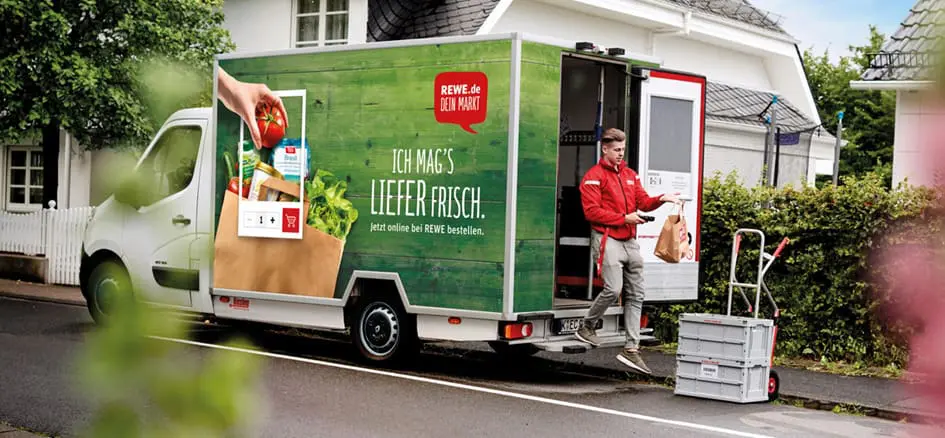
Just like the Rewe Group, the Edeka co-operative has previously provided its merchants with a central online platform, called Olivia, which completely relieves the independent merchants of the maintenance of online shop solutions and, above all, product master data, images and descriptions.
Warnings due to insufficient product data
In the Edeka Group, independent merchants had previously tried to build online shops by their own efforts. Some had to painfully abandon their delivery service due to the activities of warning associations, which found gaps in the product description required by LMIV which put EU regulation 1169/2011 into German law.
In contrast to the Rewe Group, the Edeka network does not respond well to the central platform with which merchants can build their own online shop. Only 31 merchants have been participating over a longer period. According to the calculations of the Retail Optimiser, the total online share of sales of Germany’s largest food trading group, the Edeka Group, including the centrally controlled delivery service Bringmeister and the share in Picnic, was also in the range of 0.6 percent.
Online trade with food is a loss-making business in Germany
But there is a reason for this. After all, the core problem of food retailing in Germany: to abolish self-service, to pick the goods for the customer from the shelves of the stores and then bring them home to the customer is not profitable. Not in discounter land Germany, where the prices of food are lower in relation to household income than in any other country.
Despite crowd-working in logistics, also Amazon will only burn money with the quick delivery via Prime Now. Just like Tegut, which in addition to the share of sales that Amazon retains, will also have to provide picking services in the markets.
Amazon relies on Omnichannel for food
Even though it is still unclear how Amazon will enter the grocery retail market in Germany with own stores, there is no doubt that it will happen – as an omnichannel business. In the USA, it can be observed that Amazon is working hard to establish a brick and mortar presence in food retailing – with at least four banners: the acquired organic supermarket operator Whole Foods, the cashless convenience store format Amazon Go, the slightly larger Amazon Go Grocery, which is also cashless, and the supermarket-sized new format Amazon Fresh.
Amazon’s larger grocery banners have one thing in common: they serve in different ways as a picking basis for same-day delivery by Prime Now. Amazon will not earn any money with food for a long time with so much service. But that does not stop the online primus from pushing its way into this market with large investments.
Retailers must do their homework
For the German grocery retail companies, it is therefore clear that the breather is over. They must now prepare themselves for a life with online sales based on intelligent omnichannel concepts. And they must do their homework together with their suppliers and have comprehensive and error-free product master data at hand: This includes not only the legally required information, but also all the information that people with all kinds of nutritional needs want to have. Last but not least, first-class pictures and meaningful marketing texts are needed.
Worth having a look across the border
For German retailers, it is worth taking a look across the border into France. There, most retailers have done their homework much better: Firstly, they have done a lot to be able to provide comprehensive and correct product information online, which goes far beyond the legal requirements. Secondly, some have also taken the online trade in non-food products into their own hands. And in the difficult area of food, they are not only focusing on home delivery, but also on intelligent concepts such as urban pick-up stations.
Also in France, Amazon is the largest e-commerce company, according to the French Federation of E-Commerce and Mail Order (FEVAD). But its distance to the online activities of the brick and mortar retail groups is not as significant in France at it is in the UK and Germany. And, the top management of the French retail groups sound less desperate: Michel-Édouard Leclerc, president France’s largest grocer E.Leclerc, even bluntly stated that he is “not afraid of Amazon”.
Group Casino stands its ground with Cdicount
Although the size of Amazon France – which exceptionally unveiled its total sales in France for 2018 as 4.5 billion Euros – is challenging also for all players in the market, established non-food operators such as Fnac for consumer electronics and Veepee for flash sales stand their ground. Casino-owned online pure player CDiscount posted net sales over 2 billion Euros in 2019, making it Amazon’s largest direct competitor in France.
What Cdiscount lacks in scale is partially compensated by the sourcing capabilities of its mother company and the integration into its extensive store network. To attract new third party vendors, Cdiscount recently formed the International Marketplace Network, joining forces with Romanian eMag, Italian ePrice and German Real.de.
E.Leclerc invested massively into technology
Carrefour has faced more hardships in its non-food e-commerce endeavour. It divested the online pure player Rue du Commerce four years after its acquisition, admitting profitability concerns. Similarly, the decentralised nature of shop-owner cooperatives such as those of E.Leclerc, Système U or Intermarché (ITM) has historically hampered the roll out of a consistent e-commerce presence.
But after years spent in refining the technology and adjusting internal organisation, they look to be in marching order. Michel-Édouard Leclerc even stated: “This spring, all our e-commerce operations; representing a non-neglectable turnover in excess of EUR3bn; [were] united under a single portal to fend off Amazon on both food and non-food. Within the next ten years, we will be the French Amazon.”
French retailers solved a core issue with Alkemics
In 2017, the Director E-Commerce of E.Leclerc decided to work with Alkemics to enrich the shopper omnichannel experience with better qualified product information. Up to that point, he had trouble collecting product data from thousands of suppliers across all the different categories. Data used to be not always updated and accurate due to input errors, and didn’t seem homogeneous on every channel.
Moreover, data collection took its team too much time. He also got poor data that needed to be enriched for the e-commerce websites. His aim was to get comprehensive, consistent and simple-to-read information that could be legal compliant and available on every channel, starting with the E.Leclerc website.
He wanted to get enriched information with, for example, recipes or video tutorials so the shoppers could have all the product data they needed — and even more than in a physical store. Alkemics provided E.Leclerc with this capability and onboarded more than 2,000 manufacturers within only six months, sharing thousands of products. For each product, more than 150 fields are filled in, providing deep product information.
The video shows how Alkemics supports retailers on their way to digitalisation. (Video: Alkemics)
Meanwhile, not only E.Leclerc works with Alkemics, but all French food retailers, among them Carrefour, Auchan, Intermarché, Metro Group, Casino, Louis Delhaize (Cora) and Système U. Currently, more than 18,000 brand manufacturers use Alkemics to digitise, centralise and publish their product data.
French grocery retailers manage to leverage their store networks
Despite Leclerc’s brag, Amazon will most certainly further strengthen its dominance in France. Its venture toward grocery, as initiated in other countries, will nonetheless prove particularly challenging. When Amazon leverages its non-food penetration to slowly deep into less profitable food categories, French retailers have already pre-empted e-groceries on their own terms.
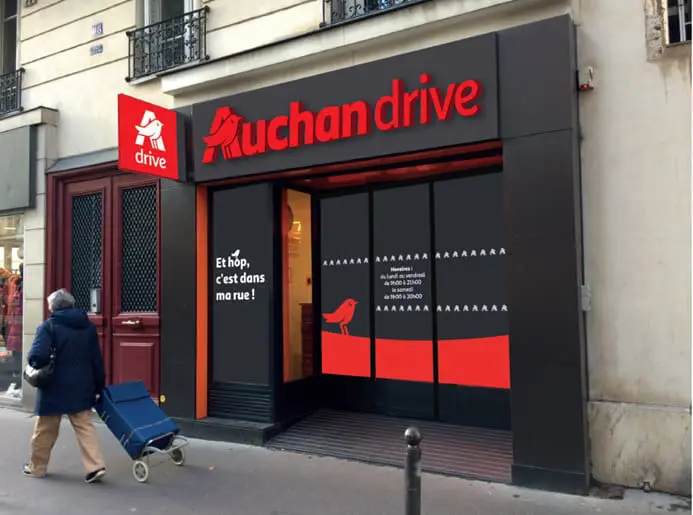
They leveraged their physical network while avoiding costly last miles by pushing forward grocery click & collect in general and drive-throughs in particular. According to the FEVAD, click & collect represents in 2019 some EUR 6 billion Euros sales, accounting for 80 percent of consumer goods e-commerce in the country.
Consequently, grocery home delivery has de-facto become a more service-focus niche, priced as such, appealing to a narrower demographics of affluent urbans or consumers with limited mobility. This segment is also getting crowded, especially when considering emerging alternatives, such as food service deliveries, or cooking boxes. Hypermarket operators are especially eager to tap into the out-of-reach urban demographic, setting up standalone pick-up points right in the heard of French cities.
E-commerce beyond home delivery
Keeping toe to toe with Cora (Louis Delhaize), Auchan and E.Leclerc, Carrefour opened a dozen standalone collection points in Paris urban area, promising 15,000 SKUs at hypermarket price. The gain in new consumers and an average basket of 55 Euro are reportedly satisfactory when considering the limited real-estate footprint and existing order fulfilment capacities.
But is grocery e-commerce profitable in France? Well, retailers are naturally silent on the subject, but Carrefour gives the answer between the lines concerning the aforementioned collection points: it considers scaling back the depth of the offering to get in line with competition to 8,000-12,000 SKUs and will test the opening of automated locker unit opened 24/7 in late summer 2020.
The online race of French retailers is primarily on maintaining market shares, hopefully gaining some while minimising the damages on the bottom-line. This may seem like a race to the bottom, but the case of France shows it may be the price to hinder an e-commerce steamroller for whom profitability is rarely a source of concerns: Amazon.


